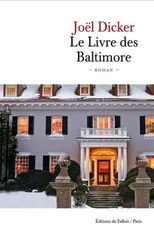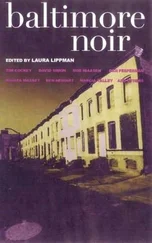Owen Wister - Lady Baltimore
Здесь есть возможность читать онлайн «Owen Wister - Lady Baltimore» весь текст электронной книги совершенно бесплатно (целиком полную версию без сокращений). В некоторых случаях можно слушать аудио, скачать через торрент в формате fb2 и присутствует краткое содержание. Жанр: Вестерн, на английском языке. Описание произведения, (предисловие) а так же отзывы посетителей доступны на портале библиотеки ЛибКат.
- Название:Lady Baltimore
- Автор:
- Жанр:
- Год:неизвестен
- ISBN:нет данных
- Рейтинг книги:5 / 5. Голосов: 1
-
Избранное:Добавить в избранное
- Отзывы:
-
Ваша оценка:
- 100
- 1
- 2
- 3
- 4
- 5
Lady Baltimore: краткое содержание, описание и аннотация
Предлагаем к чтению аннотацию, описание, краткое содержание или предисловие (зависит от того, что написал сам автор книги «Lady Baltimore»). Если вы не нашли необходимую информацию о книге — напишите в комментариях, мы постараемся отыскать её.
Lady Baltimore — читать онлайн бесплатно полную книгу (весь текст) целиком
Ниже представлен текст книги, разбитый по страницам. Система сохранения места последней прочитанной страницы, позволяет с удобством читать онлайн бесплатно книгу «Lady Baltimore», без необходимости каждый раз заново искать на чём Вы остановились. Поставьте закладку, и сможете в любой момент перейти на страницу, на которой закончили чтение.
Интервал:
Закладка:
"After what, did you say?" This was the voice of Gazza, addressing Mrs. Weguelin St. Michael. It must be said of Gazza that he, too, made a certain presence of interest in the traditions of Kings Port.
"After the revocation of the Edict of Nantes," replied Mrs. Weguelin.
"Built it in Savannah," Charley was saying to Bohm, "or Norfolk. This is a good place to bury people in, but not money. Now the phosphate proposition—"
Again I dragged my attention by force away from that quiet, relentless monologue, and listened as well as I could to Mrs. Weguelin. There had come to be among us all, I think — Beverly, Kitty, Gazza, and myself — a joint impulse to shield her, to cluster about her, to follow her steps from each little lecture that she finished to the new point where the next lecture began; and we did it, performed our pilgrimage to the end; but there was less and less nature in our performance. I knew (and it was like a dream which I could not stop) that we pressed a little too close, that our questions were a little too eager, that we overprinted our faces with attention; knowing this did not help, nothing helped, and we went on to the end, seeing ourselves doing it; and it must have been that Mrs. Weguelin saw us likewise. But she was truly admirable in giving no sign, she came out well ahead; the lectures were not hurried, one had no sense of points being skipped to accommodate our unworthiness, it required a previous familiarity with the church to know (as I did) that there was, indeed, more and more skipping; yet the little lady played her part so evenly and with never a falter of voice nor a change in the gentle courtesy of her manner, that I do not think — save for that moment at the window-sill — I could have been sure what she thought, or how much she noticed. Her face was always so pale, it may well have been all imagination with me that she seemed, when we emerged at last into the light of the street, paler than usual; but I am almost certain that her hand was trembling as she stood receiving the thanks of the party. These thanks were cut a little short by the arrival of one of the automobiles, and, at the same time, the appearance of Hortense strolling toward us with John Mayrant.
Charley had resumed to Bohm, "A tax of twenty-five cents on the ton is nothing with deposits of this richness," when his voice ceased; and looking at him to see the cause, I perceived that his eye was on John, and that his polished finger-nail was running meditatively along his thin mustache.
Hortense took the matter — whatever the matter was — in hand.
"You haven't much time," she said to Charles, who consulted his watch.
"Who's coming to see me off?" he inquired.
"Where's he going?" I asked Beverly.
"She's sending him North," Beverly answered, and then he spoke with his very best simple manner to Mrs. Weguelin St. Michael. "May I not walk home with you after all your kindness?"
She was going to say no, for she had had enough of this party; but she looked at Beverly, and his face and his true solicitude won her; she said, "Thank you, if you will." And the two departed together down the shabby street, the little veiled lady in black, and Beverly with his excellent London clothes and his still more excellent look of respectful, sheltering attention.
And now Bohm pronounced the only utterance that I heard fall from his lips during his stay in Kings Port. He looked at the church he had come from, he looked at the neighboring larger church whose columns stood out at the angle of the street; he looked at the graveyard opposite that, then at the stale, dusty shop of old furniture, and then up the shabby street, where no life or movement was to be seen, except the distant forms of Beverly and Mrs. Weguelin St. Michael. Then from a gold cigar-case, curved to fit his breast pocket, he took a cigar and lighted it from a gold match-box. Offering none of us a cigar, he placed the case again in his pocket; and holding his lighted cigar a moment with two fingers in his strong glove, he spoke —
"This town's worse than Sunday."
Then he got into the automobile. They all followed to see Charley off, and he addressed me.
"I shall be glad," he said, "if you will make one of a little party on the yacht next Sunday, when I come back. And you also," he added to John.
Both John and I expressed our acceptance in suitable forms, and the automobile took its way to the train.
"Your Kings Port streets," I said, as we walked back toward Mrs. Trevise's, "are not very favorable for automobiles."
"No," he returned briefly. I don't remember that either of us found more to say until we had reached my front door, when he asked, "Will the day after to-morrow suit you for Udolpho?"
"Whenever you say," I told him.
"Weather permitting, of course. But I hope that it will; for after that I suppose my time will not be quite so free."
After we had parted it struck me that this was the first reference to his approaching marriage that John had ever made in my hearing since that day long ago (it seemed long ago, at least) when he had come to the Exchange to order the wedding-cake, and Eliza La Heu had fallen in love with him at sight. That, in my opinion, looking back now with eyes at any rate partially opened, was what Eliza had done. Had John returned the compliment then, or since?
XIX: Udolpho
It was to me continuously a matter of satisfaction and of interest to see Hortense disturbed — whether for causes real or imaginary — about the security of her title to her lover John, nor can I say that my misinterpreted bunch of roses diminished this satisfaction. I should have been glad to know if the accomplished young woman had further probed that question and discovered the truth, but it seemed scarce likely that she could do this without the help of one of three persons, Eliza and myself who knew all, or John who knew nothing; for the up-country bride, and whatever other people in Kings Port there were to whom the bride might gayly recite the tale of my roses, were none of them likely to encounter Miss Rieppe; their paths and hers would not meet until they met in church at the wedding of Hortense and John. No, she could not have found out the truth; for never in the world would she, at this eleventh hour, risk a conversation with John upon a subject so full of well-packed explosives; and so she must be simply keeping on both him and Eliza an eye as watchful as lay in her power. As for Charley, what bait, what persuasion, what duress she had been able to find that took him at an hour so critical from her side to New York, I could not in the least conjecture. Had she said to the little banker, Go, because I must think it over alone? It did not seem strong enough. Or had she said, Go, and on your return you shall have my answer? Not adequate either, I thought. Or had it been, If you don't go, it shall be "no," to-day and forever? This last was better; but there was no telling, nor did Beverly Rodgers, to whom I propounded all my theories, have any notion of what was between Hortense and Charley. He only knew that Charley was quite aware of the existence of John, but had always been merely amused at the notion of him.
"So have you been merely amused," I reminded him.
"Not since that look I saw her give him, old chap. I know she wants him, only not why she wants him. And Charley, you know — well, of course, poor Charley's a banker, just a banker and no more; and a banker is merely the ace in the same pack where the drummer is the two-spot. Our American civilization should be called Drummer's Delight — and there's nothing in your fire-eater to delight a drummer: he's a gentleman, he'll be only so-so rich, and he's away back out of the lime-light, while poor old Charley's a bounder, and worth forty millions anyhow, and right in the centre of the glare. How should he see any danger in John?"
Читать дальшеИнтервал:
Закладка:
Похожие книги на «Lady Baltimore»
Представляем Вашему вниманию похожие книги на «Lady Baltimore» списком для выбора. Мы отобрали схожую по названию и смыслу литературу в надежде предоставить читателям больше вариантов отыскать новые, интересные, ещё непрочитанные произведения.
Обсуждение, отзывы о книге «Lady Baltimore» и просто собственные мнения читателей. Оставьте ваши комментарии, напишите, что Вы думаете о произведении, его смысле или главных героях. Укажите что конкретно понравилось, а что нет, и почему Вы так считаете.










